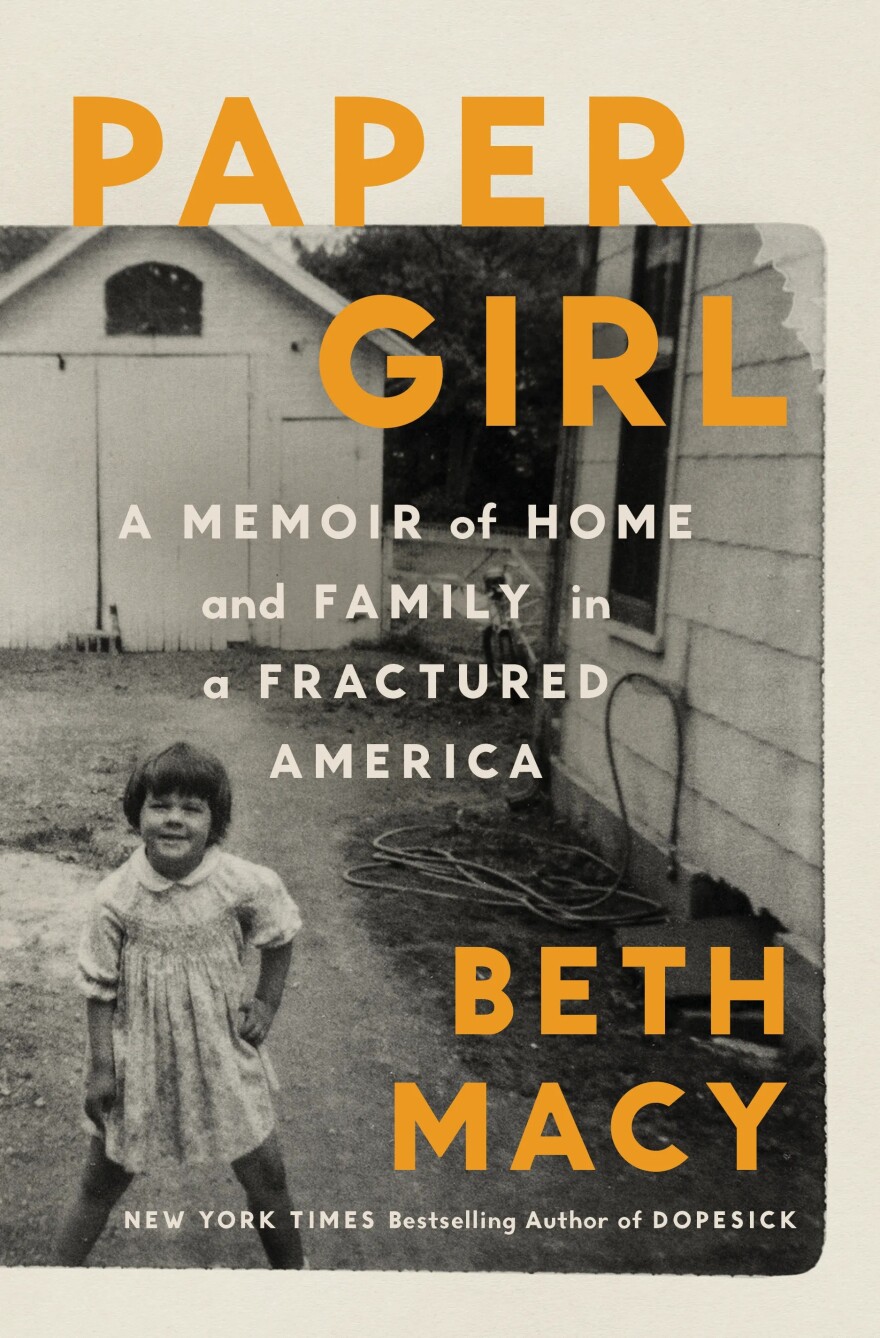The small town of Urbana, in west central Ohio, looks a lot different than it did when Beth Macy grew up there.
Employers left in droves. Truancy rates skyrocketed. Rates of suicide and addiction soared. Access to local news dwindled. Suddenly, she saw confederate flags waving in her hometown that was once an important stop on the Underground Railroad.
On visits back to the small town, she found herself wondering where the educational opportunities that helped her out of poverty and into higher education had gone.
She decided to investigate. In her new memoir, “Paper Girl: A Memoir of Home and Family in a Fractured America”, she explores the policies she says have kept her rural community impoverished and divided. Through her own fractured family, Macy reckons with the polarizing political divides that has transformed Urbana, and much of small town America, since she left it.
Macy sat down with The Ohio Newsroom to talk about her book.
This interview has been edited lightly for brevity and clarity.

On what’s different in Urbana today
“I see my hometown of Urbana as kind of a microcosm of a lot of rural America. Rural America has disproportionately paid for things like NAFTA and China joining the WTO in terms of job losses, and also the deregulation of Big Pharma: rapacious pharma companies dumping all these pills and killing our kids.”
“The way I was able to leave Urbana was by going to college. And I went in the mid-’80s during this brief moment of our history when it was possible for a poor kid to get a full Pell grant that paid the full tuition. … Now, that grant, because of underfunding of education and skyrocketing tuition, would only cover about 30% of my costs today. So even 10 years later, even by the mid-’90s, it wouldn't have been possible for me to go to college.”
“I make the case in the book that because so much of our news comes out of cities and by college graduates and people who went to the Ivy League, that this story wasn't told.”
On her own family’s fracturing
“In the 2010s, during Trump's first term, we started to get really divided politically. Things would come up that had never come up before. I would ask my brother-in-law how he was doing and he would go, ‘Deplorable,’ trying to pick a fight.”
“As our mother was dying in 2020, it happened to be the Saturday after the election and the hospice nurse saw the story on her phone and she said, ‘Ugh, they're calling it for Biden.’ My sister, Cookie, who was evangelical, but had never expressed political opinions much before, said, ‘You wait, it's fraudulent, he won't win.’ And so I wrote this piece about what even is left of my family in the wake of my mom's death, who was such a convener and bringer-together. I had a brother unfriend me on Facebook because of ‘all the liberal crap’ I post. But I posted fact-checked articles.”
“What's up with my town that was an important stop on the Underground Railroad now flying confederate flags? I mean, I just wanted to figure out what had changed. Was it them who had changed or was it me who had changed?”
On talking across the divide
“My brother and I had this rupture. We hadn't seen each other in a few years, and then we started spending time together. And I interviewed a lot of experts about how to talk across the divide. And they said, ‘Leave politics behind. Just go figure out who you are as people.’ So my brother came to this little cabin we have in the mountains in Virginia, and we fished. And we did talk across the divide. I have a non-binary child. He said, ‘Well, does he still date girls?’ And he said it in such a kind, tender, non-judgmental way that I said, ‘Yes, they are dating a young woman now, and I still mess up the pronouns, too.”
“Being able to extend grace with each other really helps. And I just think it's important to spend time. It's really hard. It was easier to ignore folks that you don't agree with because we're all so siloed right now.”






